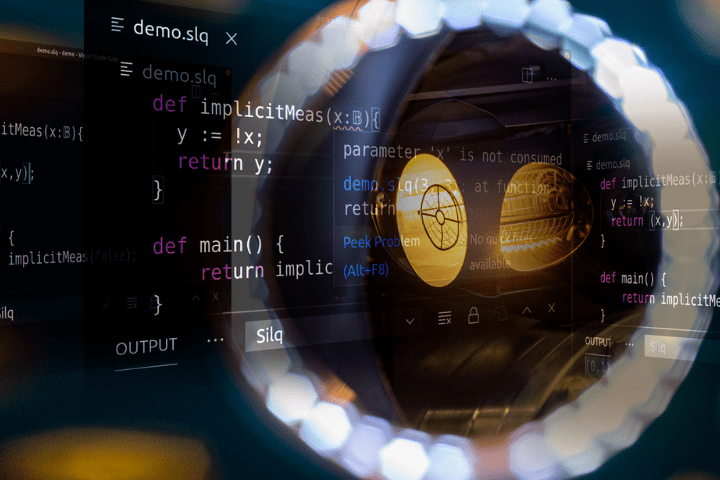In the ever-accelerating race toward technological advancement, the landscape of computing is poised for a groundbreaking transformation — one fueled by the enigmatic realm of quantum programming. As classical computing confronts its limitations in the face of increasingly intricate problems, quantum programming emerges as the torchbearer of a new era. This article embarks on a journey into the future of computing, unravelling the intricacies of quantum programming paradigms and their potential to redefine the boundaries of what is computationally achievable.
Table of Contents
Understanding Quantum Computing
To comprehend the future of quantum programming, it’s essential to grasp the fundamentals of quantum computing. Unlike classical bits, which exist in a state of either 0 or 1, quantum bits, or qubits, can exist in multiple states simultaneously thanks to the principles of superposition. This unique characteristic enables quantum computers to process vast amounts of information in parallel, potentially solving complex problems exponentially faster than classical computers.
Quantum Gates and Circuits
Quantum programming is the development of algorithms and software tailored to exploit the unique computational potential of quantum computers. These computers operate on the foundational principles of quantum mechanics, opening up new horizons in computing capabilities.
In quantum programming, the building blocks are quantum gates and circuits. These are the counterparts of classical logic gates and circuits but operate on qubits. Quantum gates manipulate the quantum states of qubits, and quantum circuits are composed of sequences of these gates. Understanding how to design and optimize quantum circuits is crucial for harnessing the power of quantum computing.
Programming Languages for Quantum Computing
Just as classical computers have programming languages like Python, Java, and C++, quantum computers require their own set of languages. Quantum programming languages, such as Qiskit, Cirq, and Quipper, are emerging to facilitate the development of quantum algorithms. These languages provide a bridge between the abstract principles of quantum mechanics and the practical implementation of quantum algorithms.
Algorithms for Quantum Computing
The future of computing is intricately linked to the development of quantum algorithms. Shor’s algorithm, for instance, demonstrates the potential of quantum computers to factorize large numbers exponentially faster than classical algorithms. Grover’s algorithm, on the other hand, showcases the ability of quantum computers to search unsorted databases quadratically faster than classical counterparts. As researchers explore new algorithms, the potential applications of quantum computing continue to expand.
Challenges in Quantum Programming
While the future of quantum programming holds great promise, it is not without its challenges. Quantum computers are highly susceptible to errors due to environmental factors and the delicate nature of quantum states. Quantum error correction techniques are being developed to address these challenges, but they add complexity to the programming process. Additionally, the scarcity of stable qubits and the need for low temperatures create practical hurdles for widespread quantum computing adoption.
Hybrid Quantum-Classical Systems
Recognizing the challenges posed by the nascent state of quantum computing, researchers are exploring hybrid quantum-classical systems. These systems combine the strengths of both classical and quantum computing, allowing for more practical and scalable solutions. Quantum programming in the future might involve seamlessly integrating quantum algorithms with classical computations to tackle complex problems efficiently.
Real-world Applications
The future of quantum programming extends beyond theoretical advancements. Quantum computers have the potential to revolutionize industries such as finance, healthcare, and logistics. For example, quantum algorithms could optimize financial portfolios, simulate molecular structures for drug discovery, and enhance supply chain optimization. As quantum hardware matures and algorithms improve, the practical applications of quantum programming will become increasingly evident.
The Role of Quantum Cloud Computing
In the future, quantum programming might not be confined to specialized quantum computers. Quantum cloud computing is emerging as a paradigm where quantum processors are accessible remotely via the cloud. This democratizes access to quantum computing resources, enabling researchers and developers around the world to experiment with and harness the power of quantum programming without the need for on-premises quantum hardware.
Conclusion
As we navigate the future of computing, quantum programming stands out as a transformative force. The ability to manipulate quantum states and harness the power of superposition opens up new frontiers in solving problems that were previously insurmountable for classical computers. While challenges persist, ongoing research and advancements in quantum programming paradigms promise a future where quantum computers coexist with classical systems, offering unprecedented computational capabilities. As quantum programming languages mature, algorithms evolve, and quantum hardware becomes more accessible, we are on the brink of a new era in computing, where the boundaries of what is possible continue to expand.
Also Read: What It Takes To Run A Modern Transportation Business




